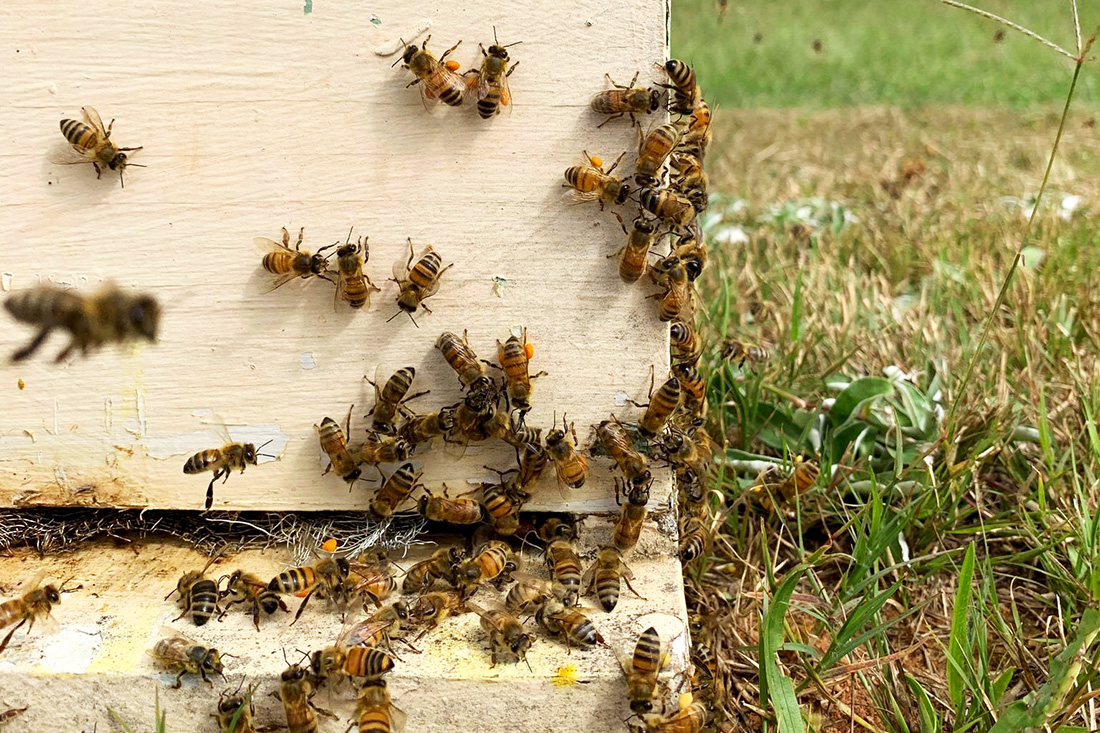Welcome rains have Georgia's peanuts, cotton, pastures and yards growing again. But one emerging plant isn't so welcome: mushrooms. A University of Georgia scientist said they're popping up in yards all over the state.
"We see mushrooms emerge when rain comes after an extended dry period," said Ed Brown, an Extension Service plant pathologist with the UGA College of Agricultural and Environmental Sciences. "Dry weather stresses these fungi. Then water becomes available, it triggers the reproductive mechanism and we get mushrooms."
Mushrooms are plants. They don't contain chlorophyll, the chemical that makes most plants green, but they are plants.
| Left-click to download the 9.16 M .jpg image; right-click to download the thumbnail image. |
"Mushrooms are the fruiting bodies of fungi that live below the soil surface," Brown said. "A lot of people think mushrooms are a sign of soil problems. But they're not bad for the soil."
In fact, fungi are a vital part of a healthy soil ecosystem, Brown said. The fungi that live in the soil help break down dead plants and other organic materials.
"We just don't want them in our yards," Brown said. While the fungi that produce mushrooms are good for soil, they're not good for your lawn. And they can be harmful to your pets and even your children.
Circles or partial circles of mushrooms, called fairy rings, show where a colony of fungi is hard at work helping material decay. The 'fingers' of the fungi extend radially from the colony, and mushrooms grow where the fingers emerge from the soil.
Fairy rings are the hardest mushrooms to deal with. "Not only are the plants themselves hard to control," Brown said, "but they can damage your lawn."
Fairy rings and other mushrooms produce toxins that can kill lawn grasses. So even when you get rid of the mushrooms, you could still have a dead patch in your yard.
The toxin mushrooms most commonly produce is a cyanide-based chemical. So keep children and pets away from yard mushrooms to avoid poisoning or other health problems.
| Left-click to download the 9.16 M .jpg image; right-click to download the thumbnail image. |
 |
If you know a child has eaten a yard mushroom, collect a sample of it and call the poison control center immediately. Doctors will need to know what mushroom was eaten to properly treat the child.
Brown recommends prevention to keep mushrooms in the woods. "Keep your lawn moist," he said. "If it stays adequately moist, the fungus will stay underground and won't produce mushrooms."
If you already have mushrooms, kick them over, run over them with the mower or pull them up. That keeps them from releasing the spores that spread the fungi. Then prevent further lawn damage by thoroughly aerating the soil.
Do that by poking holes in the ground with a pitchfork, garden cultivator or aerator. Your local garden center may rent aerators that attach to your riding lawn mower.
"After you aerate the soil, water the area to dilute any toxins and wash them through the soil," Brown said. If a patch of grass has died, reestablish grass in that area next spring, and keep it moist to prevent new mushroom growth.







